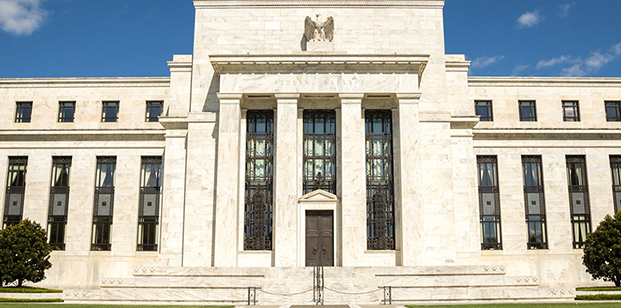The bond market is rattled by Trump’s ‘big beautiful bill’.
- US treasury yields are climbing in response to the administration’s tax cuts and spending plans
- In the bill, tax cuts and defence spending are funded with cuts to Medicaid and other welfare spending
- The bill is likely to add trillions to the already vast US deficit
US treasuries yields are climbing again, and are now beyond the peak that spooked Donald Trump into a climb-down over his Liberation Day tariffs. The cause? A ‘big, beautiful’ tax bill that extends the tax cuts made during his first term, but which comes with a cost of $3-4 trillion over the next 10 years. If US debt looked unsustainable before, this might tip it over the edge.
The bill balances generous tax cuts - the White House claims that Americans earning between $30,000 and $80,000 a year will pay about 15% less in taxes – with cuts to Medicaid and spending under the Affordable Care Act. It also pledges huge spending on border controls and defence.
Estimates for the fiscal impact of the bill vary, but most non-partisan economists agree that it will add trillions to the US’s $36 trillion debt. This was a key reason for Moody’s downgrade of US debt last week, removing the last of the US’s triple-A ratings. The rating agency pointed out that successive US administrations had failed to reverse ballooning deficits and interest costs.
This is already playing out in bond auctions. The $16bn auction of 20-year treasuries this week came with a 5% coupon, the highest interest rate since this type of bond was reintroduced in 2020. Even at this yield, the auction attracted only light interest, with only foreign demand remaining relatively solid. The CDS market has already raised the cost of insuring US debt and the dollar continues to be weak. Faith in US assets has clearly been rattled.
The bill now looks likely to pass. The problem is that the solution to market jitters would be greater fiscal restraint, and the current administration shows no sign of being able to do that. Performative gestures, such as Elon Musk’s interventions in DOGE, appear to have delivered little tangible benefit. The current thinking appears to be that the DOGE initiative has actually cost money rather than saved it.
There is a complex and uncertain road ahead for the US economy. The bond market is worried, the currency market is worried, it is only the US equity market that is shrugging it off. This optimism may be misplaced. The US economy is, for the next four years, chained to an administration that believes the normal laws of economics don’t apply to them.









